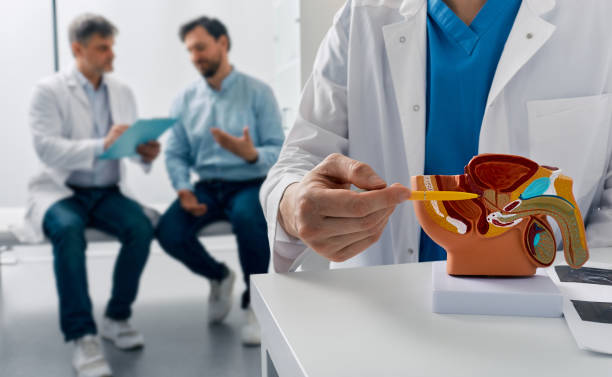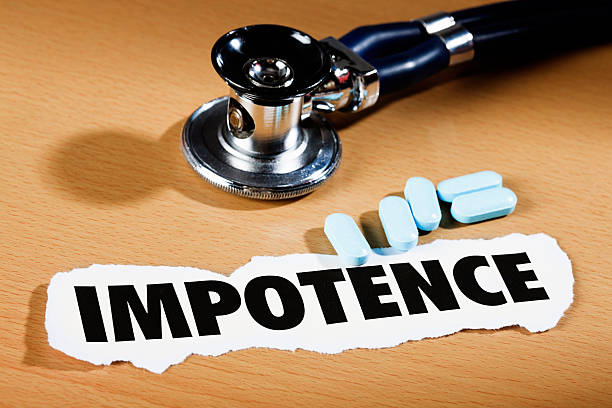As men age, changes in sexual health become more common, and one of the most frequent concerns is impotence, also known as erectile dysfunction (ED). While experiencing ED can be frustrating or even distressing, it is often a natural part of the aging process. However, getting older doesn’t mean giving up on a satisfying sex life. Many men over 50 successfully manage ED through a combination of lifestyle changes, medical treatments, and natural remedies.
In this guide, we’ll discuss what to expect after 50, the most common causes of ED, and proven strategies to enhance sexual performance, increase confidence, and maintain overall sexual wellness. Whether you’re looking for prevention tips or treatment options, this article will provide expert-backed advice to help you stay sexually healthy as you age.
Understanding Impotence After 50
Impotence, or erectile dysfunction (ED), occurs when a man struggles to achieve or maintain an erection firm enough for sexual activity. While occasional difficulties are normal, frequent or persistent issues may indicate an underlying problem. Many men over 50 experience some degree of erectile changes due to natural aging, hormonal shifts, reduced blood flow, or underlying health conditions.
Factors such as stress, lifestyle choices, and medications can also contribute to ED. Understanding these changes is the first step toward managing symptoms and maintaining a healthy, active sex life.

Common Causes of Erectile Dysfunction
Erectile dysfunction (ED) can stem from a variety of factors, some related to the natural aging process and others influenced by lifestyle choices or underlying health conditions. As men age, decreased blood flow, lower testosterone levels, and reduced nerve sensitivity can make it more difficult to achieve and maintain an erection. However, lifestyle habits such as smoking, excessive alcohol consumption, poor diet, and lack of exercise can also play a significant role in worsening ED symptoms.
Additionally, medical conditions like diabetes, high blood pressure, heart disease, and stress-related disorders can contribute to erectile difficulties. Understanding these causes can help men take proactive steps toward improving their sexual health.
Key Causes of Erectile Dysfunction After 50
Decreased Blood Flow
Healthy erections rely on strong blood circulation. Over time, conditions like high blood pressure, heart disease, and diabetes can cause arteries to narrow, restricting blood flow to the penis. This makes it more difficult to achieve and maintain an erection. Maintaining heart health is essential for optimal sexual function.
Lower Testosterone Levels
Testosterone, the primary male sex hormone, naturally declines with age. Lower levels can lead to reduced libido, weaker erections, fatigue, and mood changes that affect sexual desire. While this is a normal part of aging, lifestyle changes and medical treatments can help maintain healthy testosterone levels.
Nerve Damage
Nerve function is crucial for arousal and erections. Conditions such as diabetes, nerve-related diseases, or surgeries like prostate removal can damage nerves, making it harder to respond to sexual stimulation. Managing underlying health issues can help prevent further nerve-related complications.
Medication Side Effects
Many men over 50 take medications for high blood pressure, depression, or prostate conditions, some of which can negatively impact erectile function. If you notice changes after starting a new medication, consult your doctor to explore alternative treatments that may have fewer sexual side effects.
Psychological Factors
Mental health plays a significant role in sexual function. Stress, anxiety, and depression can interfere with arousal and performance. Relationship issues can also contribute to ED. Seeking professional help or practicing stress-reducing techniques like mindfulness and therapy can improve both mental well-being and sexual health.
Unhealthy Lifestyle Habits
Smoking, excessive alcohol consumption, poor diet, and lack of exercise can all contribute to ED. These habits negatively impact circulation, hormone levels, and overall health. Adopting a balanced diet, regular physical activity, and quitting harmful habits can significantly improve erectile function and overall well-being.
By understanding these common causes, men can take proactive steps to improve their sexual health and maintain a fulfilling sex life after 50.

How to Stay Sexually Healthy After 50
While erectile dysfunction (ED) becomes more common with age, it doesn’t mean you have to give up on a satisfying sex life. By making key lifestyle changes, managing health conditions, and seeking the right treatments, men over 50 can maintain strong sexual function and confidence. Prioritizing heart health, staying physically active, eating a balanced diet, and managing stress can all play a crucial role in supporting sexual performance.
As men age, maintaining sexual health requires a proactive approach. While erectile dysfunction (ED) may become more common, adopting the right lifestyle habits and seeking appropriate treatments can help men over 50 enjoy a fulfilling sex life. Here are nine key strategies to support sexual wellness:
1. Adopt a Heart-Healthy Diet
Good circulation is essential for strong erections, and a nutritious diet plays a major role. Eating plenty of fruits, vegetables, whole grains, lean proteins, and healthy fats can improve blood flow. Foods like leafy greens, berries, nuts, and fatty fish (such as salmon) are especially beneficial for heart and erectile health.
2. Stay Physically Active
Regular exercise boosts circulation, enhances heart health, and helps regulate hormone levels. Aim for at least 30 minutes of moderate physical activity most days of the week. Activities such as brisk walking, swimming, strength training, and yoga can all improve endurance, reduce stress, and support better sexual function.
3. Manage Stress Effectively
Chronic stress increases the production of cortisol, a hormone that can interfere with testosterone levels and contribute to ED. Reduce stress through relaxation techniques such as deep breathing, meditation, mindfulness, or yoga. Speaking with a therapist or counselor can also be helpful for managing anxiety and relationship concerns.
4. Prioritize Quality Sleep
Poor sleep can lower testosterone levels, reduce energy, and negatively impact sexual performance. Strive for 7–9 hours of restful sleep each night. Establish a regular bedtime routine, limit screen time before bed, and create a comfortable sleep environment to enhance sleep quality.
5. Limit Alcohol and Avoid Smoking
Excessive alcohol consumption can impair erections by lowering testosterone and affecting nerve function. Similarly, smoking damages blood vessels, restricting blood flow to the penis. Cutting back on alcohol and quitting smoking can significantly improve erectile function and overall health.
6. Maintain a Healthy Weight
Being overweight increases the risk of ED, as obesity is linked to conditions such as diabetes, high blood pressure, and heart disease. Losing even a small amount of weight can improve circulation, hormone balance, and sexual function. A combination of a nutritious diet and regular exercise can help achieve and maintain a healthy weight.

7. Consider Natural Supplements
Certain natural supplements, such as L-arginine, ginseng, maca root, and horny goat weed, are believed to support sexual health by improving circulation and boosting libido. However, always consult a healthcare provider before taking supplements to ensure safety and effectiveness.
8. Communicate with Your Partner
Open communication with your partner is key to maintaining intimacy and reducing performance anxiety. Discussing concerns, exploring new ways to connect, and fostering emotional closeness can help strengthen your relationship and ease stress related to ED.
9. Consult a Doctor for Medical Options
If lifestyle changes aren’t enough, a doctor can recommend effective treatments for ED, including:
- Prescription Medications: Medications like Viagra, Cialis, and Levitra can enhance blood flow and improve erections.
- Testosterone Therapy: If low testosterone is a contributing factor, hormone replacement therapy may help restore libido and performance.
- Devices and Surgical Options: Vacuum erection devices, penile implants, or other medical interventions may be recommended for more severe cases of ED.
By incorporating these strategies into your daily routine, you can enhance your sexual health and maintain a satisfying sex life well beyond 50. If you experience persistent ED, consult a healthcare provider to explore personalized treatment options.
Final Thoughts: Maintaining Sexual Health After 50
Experiencing impotence after 50 is common, but it doesn’t mean your sex life has to suffer. With the right lifestyle choices, proactive health management, and available treatments, men can maintain strong sexual function and intimacy well into their later years. Prioritizing heart health, staying active, managing stress, and maintaining open communication with your partner can make a significant difference in your overall well-being.
If you’re struggling with erectile dysfunction, don’t ignore the signs. ED can sometimes indicate underlying health issues such as heart disease or diabetes. Consulting a healthcare provider can help you identify the cause and find the best treatment options, whether through lifestyle adjustments, medications, or natural remedies.
A fulfilling sex life is possible at any age. By taking control of your health and making informed choices, you can continue to enjoy intimacy and confidence well beyond 50.

